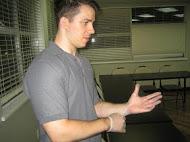Introduction
When blood pressure drops to a low level while battling an infection, a person is said to be in septic shock. The infection can be caused by any sort of bacteria, including viruses. Though viruses are rare with causing infections. At first, the infection is often associated with sepsis. This is when the person feels weak, they may have chills, a rapid heartbeat, along with breathing heavily. When this is left untreated, it causes the toxins that are left behind by the bacteria to attack the small blood vessels, causing them to leak fluid into the tissues that surround it. This is going to affect how your heart is able to pump blood to your organs, including the brain and liver.
Swelling might lead to organ damage. Clots in the blood during sepsis decreases the flow of blood to the organs, which starves them of oxygen. In serious cases, the organs can fail. Infection can also result in a deadly decrease in blood pressure, also known as septic shock.

There are those who have a weakened immune system who are considered at a higher risk for developing septic shock. These people include:
- The elderly
- New-born babies
- Women who are pregnant
- Those who have long-term health conditions such as kidney failure or the like
- Those who have lowered immune system due to HIV, AIDS or receiving chemotherapy
The Symptoms of Septic Shock
There are several symptoms of septic shock that can signal a person is going through this. These symptoms include:
- The person may feel dizzy upon standing as their blood pressure is low
- A person often feels confused or disorientated
- Diarrhoea
- Nausea
- Vomiting
- Skin is cold, pale and clammy
This is a medical emergency; thus, an ambulance should be called when you believe that this is happening to someone.
Septic Shock Treatment
When a person arrives at an emergency room with septic shock, they are usually placed in an intensive care unit immediately to monitor the body organs and treat the infection. In many cases, the treatment for the infection can be started immediately. The treatment may include:
- Give fluids through an IV
- Utilizing oxygen therapy
- Giving antibiotics
- Medications to increase the blood flow
- In some cases, surgery may be needed
Septic Shock Complications
Surviving septic shock is going to depend on several aspects. These aspects include:
- The cause of infection
- How many organs have failed
- How soon the person receive treatment
The complications of not getting treatment soon enough include:
- Heart failure
- Respiratory failure
- Kidney failure
- Blood clotting that is considered abnormal
Related Video On Septic Shock
https://www.youtube.com/watch?v=GTt4lxzB1-k
